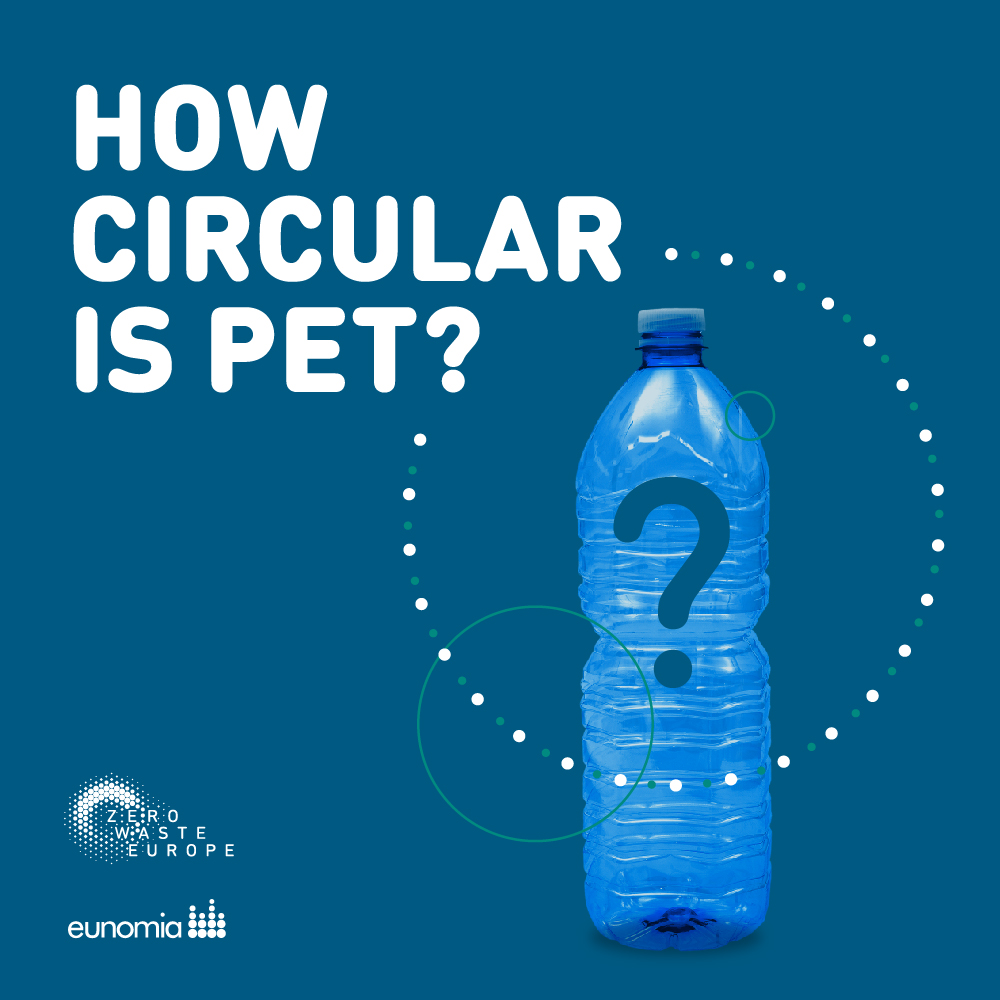
In a report commissioned to Eunomia by Zero Waste Europe, we bring you an analysis of the true state of circularity of Polyethylene terephthalate (PET) in bottles in Europe – including how much material from bottles is collected for recycling; how much of it is actually recycled; and how much of recycled PET is put into new bottles.
Full report available in English.
Executive Summary available in English, Croatian, German, and Hungarian.
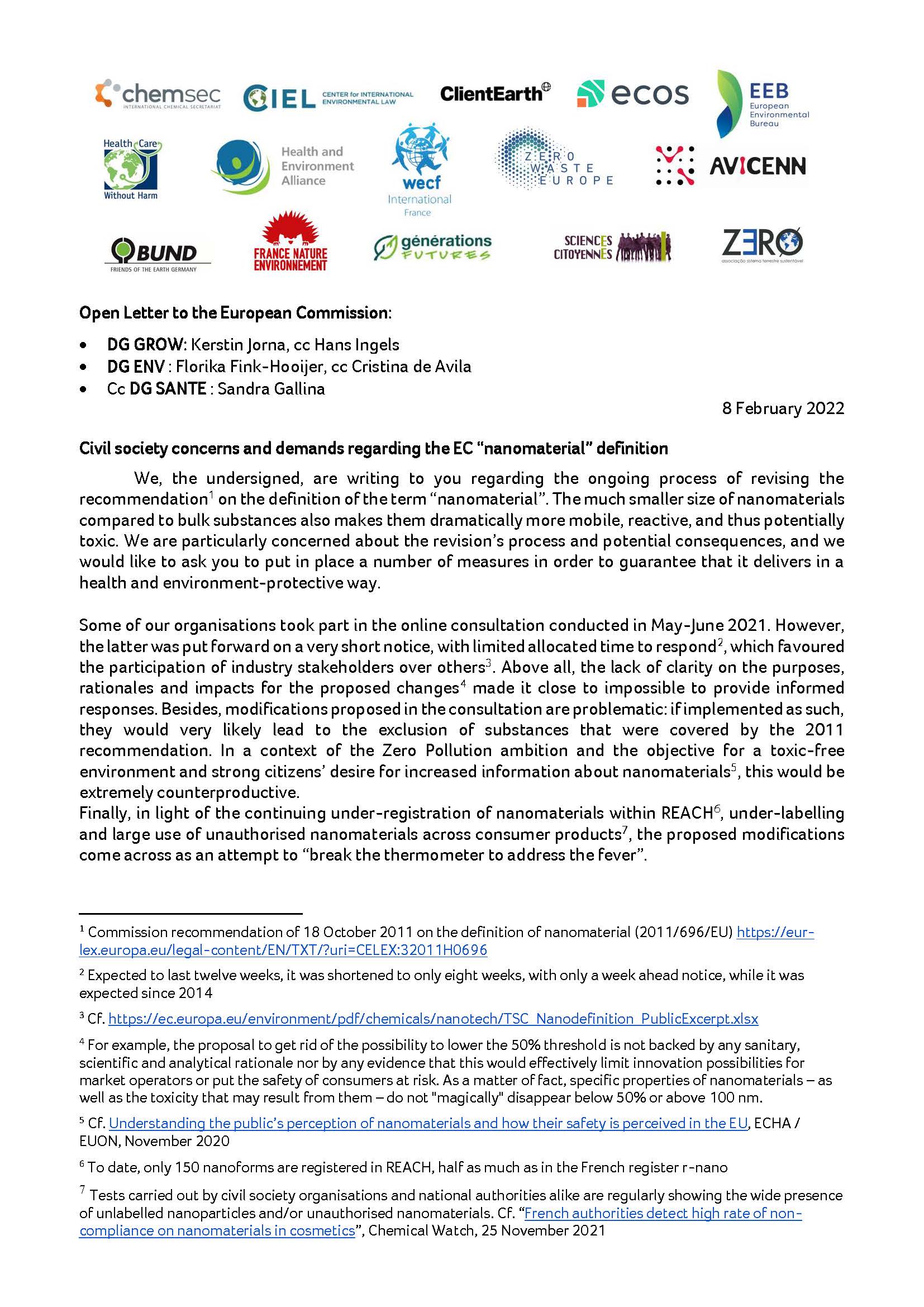
Zero Waste Europe joined 14 other organisations in calling the European Commission to properly and collectively scrutinise the ins and outs of the changes proposed (as well as those that have not been considered) to the definition of “nanomaterial”.
Available in English.
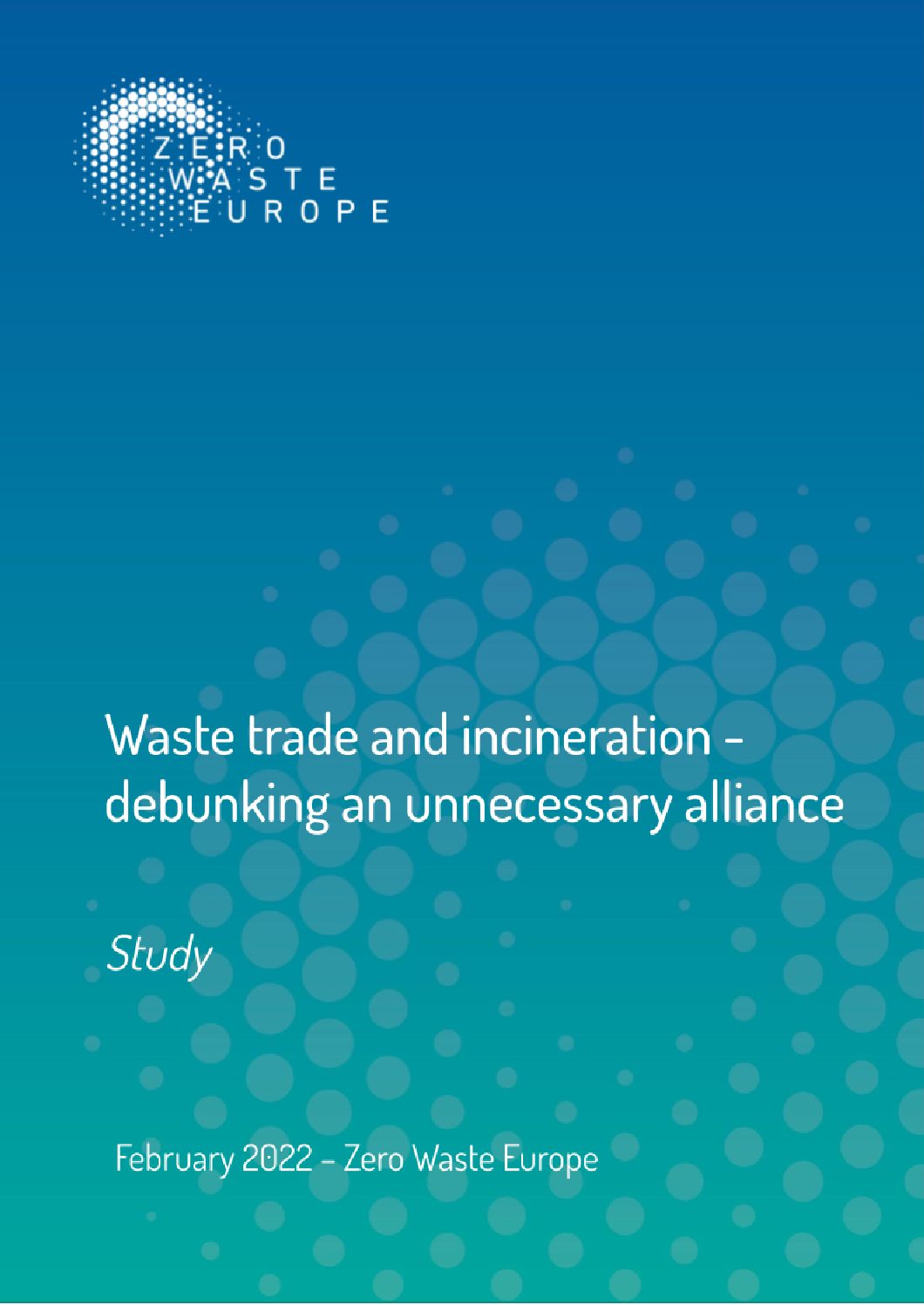
To further limit the waste shipped outside its territory, the EU is looking at adopting new waste export bans. In this case, any surplus of waste should be absorbed by intra-EU recycling, prevention, and reuse activities. However, the incineration industry claims that potential waste export restrictions should lead to an increase in the need for incineration capacity.
This study demonstrates that the need for further incineration capacity resulting from new waste export bans is neither necessary nor justified.
Available in English.
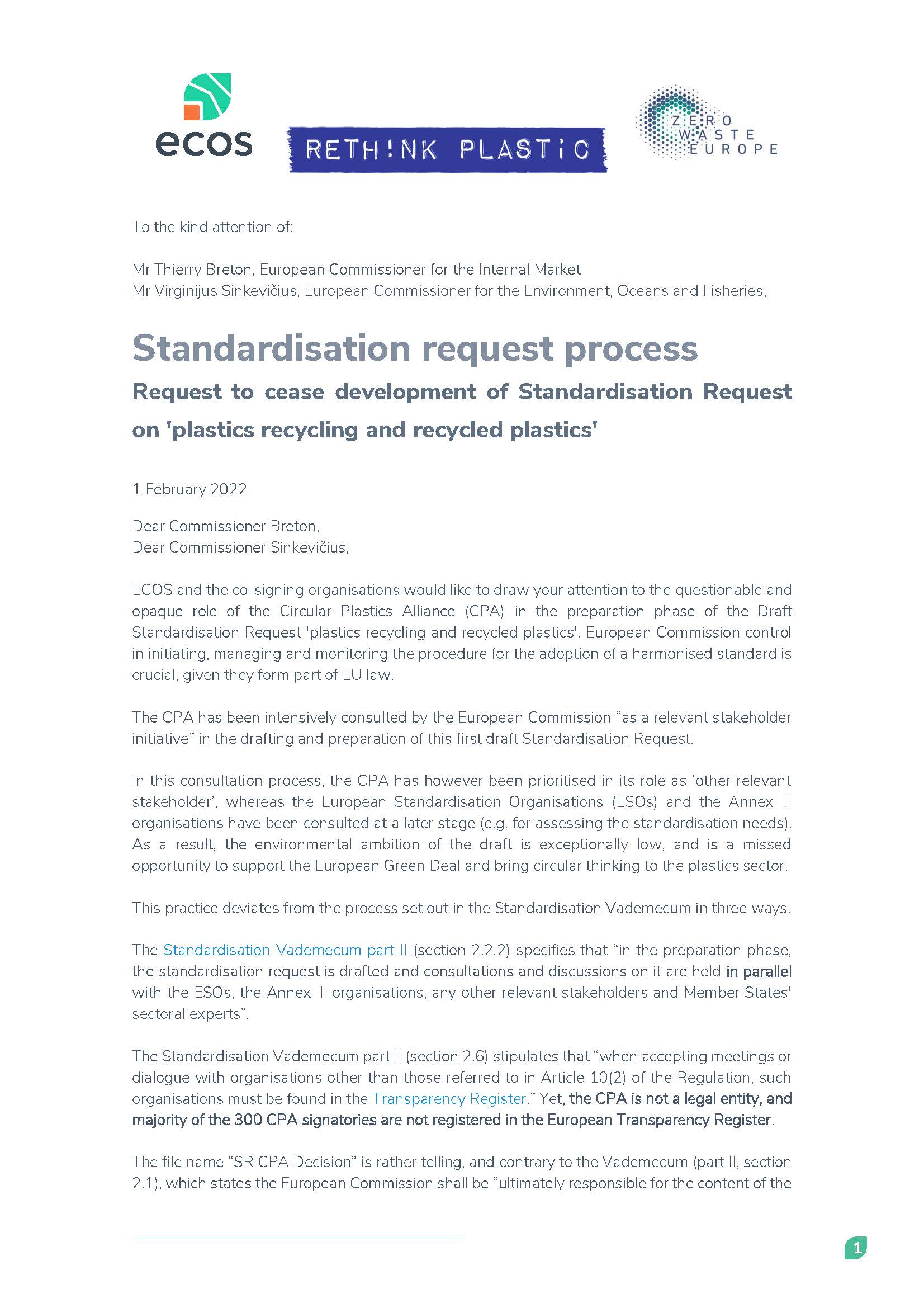
In a letter sent to the European Commission, ECOS, Zero Waste Europe, and the Rethink Plastic alliance ask EU Commissioners Thierry Breton and Virginijus Sinkevicius to stop the development of a Standardisation Request on ‘plastics recycling and recycled plastics’. This is the first stage for new standards on the matter.
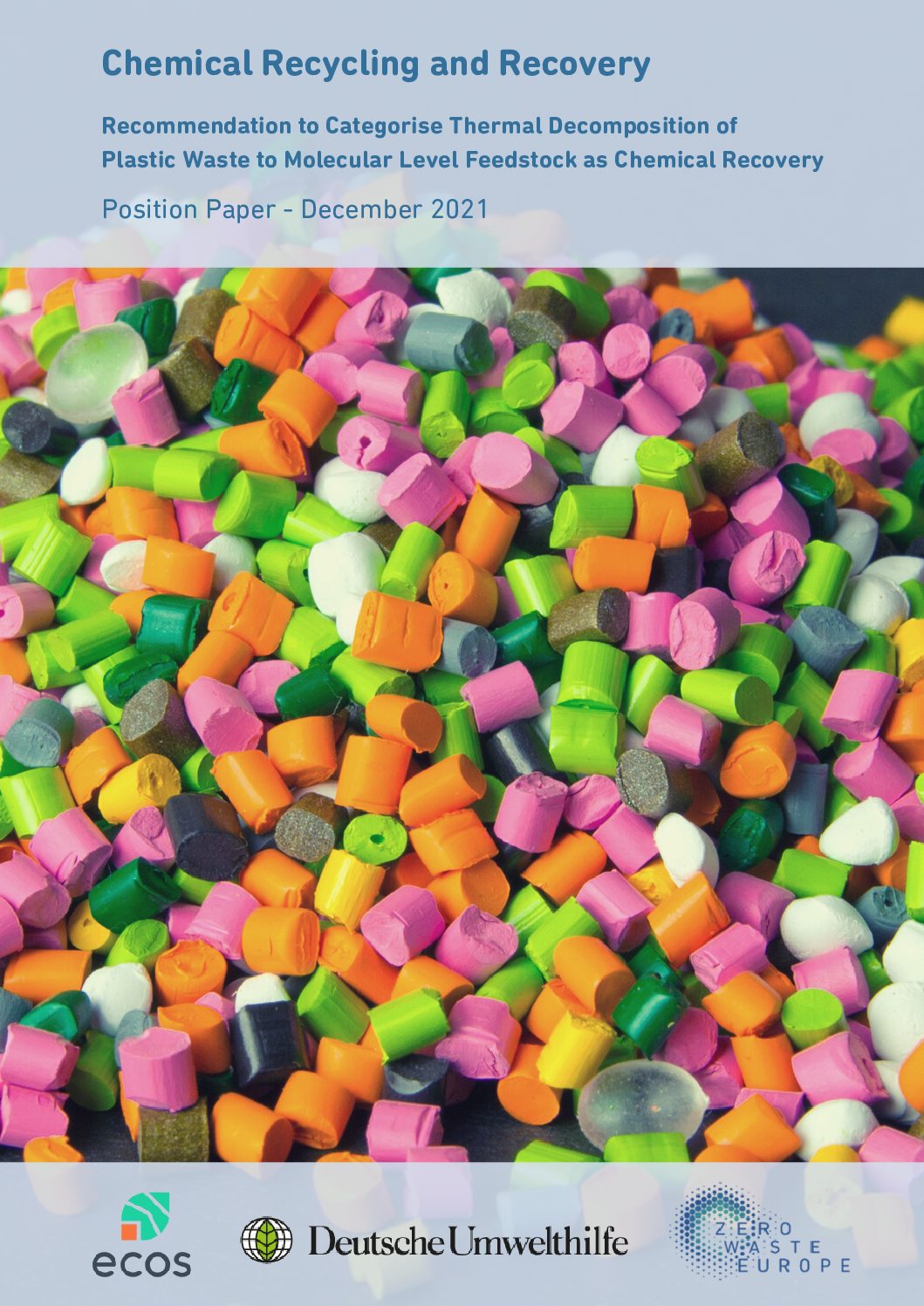
The objective of this briefing is to provide a recommendation for categorising thermal decomposition of plastic waste into feedstock molecules as chemical recovery. This covers mainly pyrolysis and gasification techniques.
The European waste hierarchy for a circular economy must be operationalised to favour reduction, reuse, and, as a last resort, recycling. It is, thus, essential to distinguish plastic waste recycling operations from recovery techniques. As such, pre-treatment of plastic waste into feedstock molecule shall be classified as chemical recovery and not chemical recycling.
Available in English.
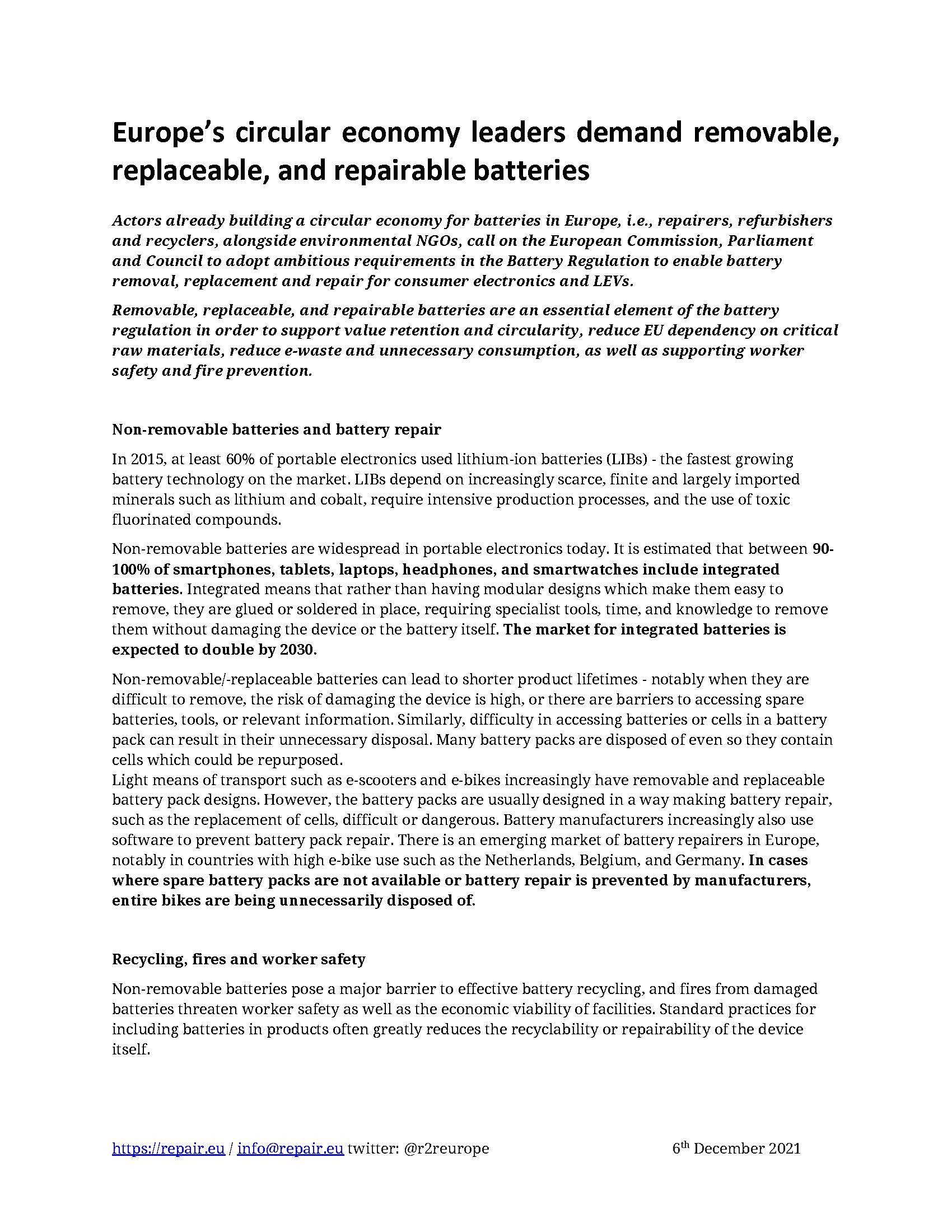
In a statement led by EEB, Zero Waste Europe and 21 other organisations call on the European Commission, Parliament and Council to adopt ambitious requirements in the Battery Regulation to enable battery removal, replacement and repair for consumer electronics and LEVs.
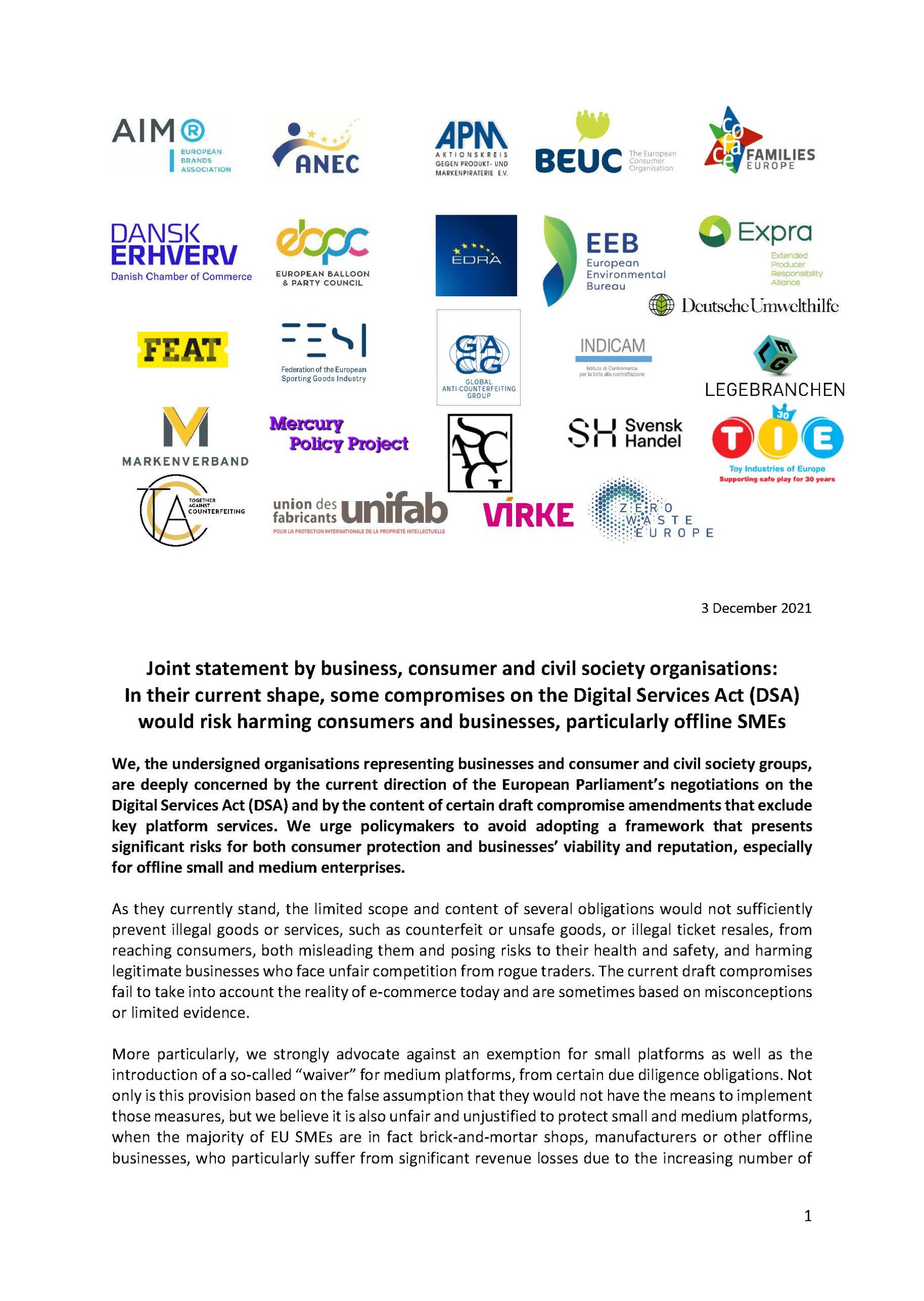
In a joint statement spearheaded by BEUC, ZWE and 23 other organisations representing businesses and consumer and civil society express their deep concern about the current direction of the European Parliament’s negotiations on the Digital Services Act (DSA) and by the content of certain draft compromise amendments that exclude key platform services. We urge policymakers to avoid adopting a framework that presents significant risks for both consumer protection and businesses’ viability and reputation, especially for offline small and medium enterprises.
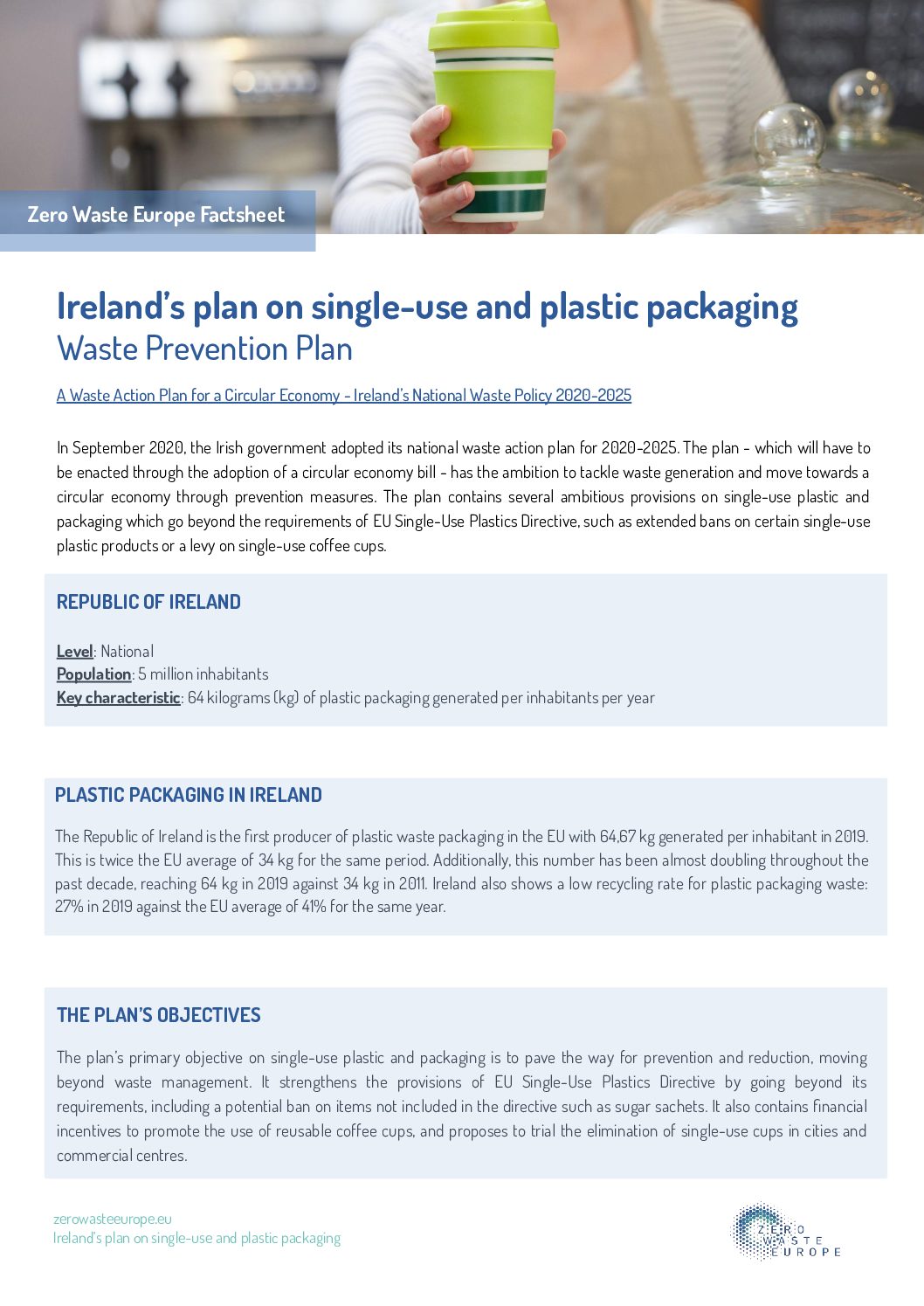
In September 2020, the Irish government adopted its national waste action plan for 2020-2025. The plan – which will have to be enacted through the adoption of a circular economy bill – has the ambition to tackle waste generation and move towards a circular economy through prevention measures. The plan contains several ambitious provisions on single-use plastic and packaging which go beyond the requirements of EU Single-Use Plastics Directive,bsuch as extended bans on certain single-use plastic products or a levy on single-use coffee cups.
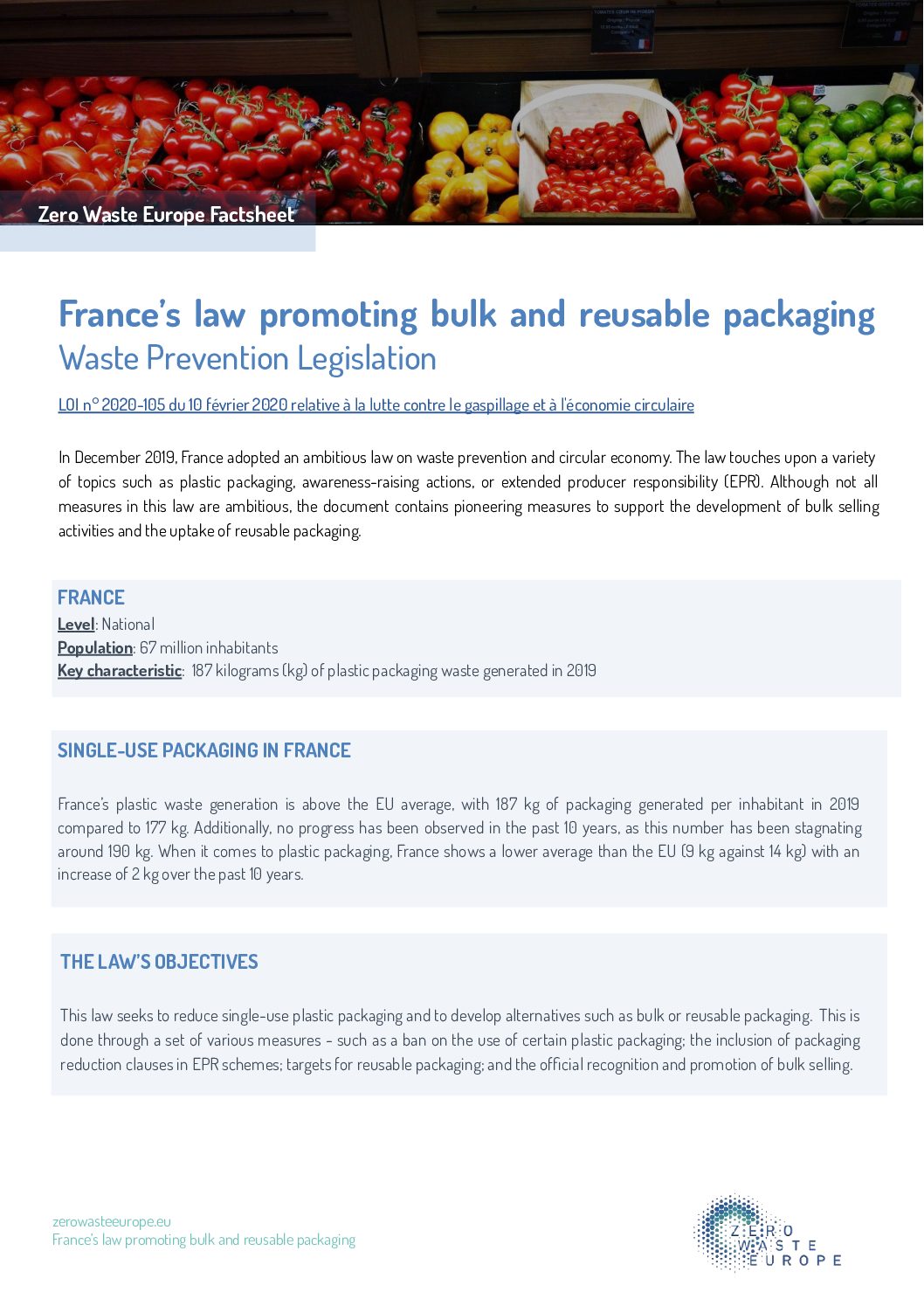
In December 2019, France adopted an ambitious law on waste prevention and circular economy. The law touches upon a variety of topics such as plastic packaging, awareness-raising actions, or extended producer responsibility (EPR). Although not all measures in this law are ambitious, the document contains pioneering measures to support the development of bulk selling activities and the uptake of reusable packaging.
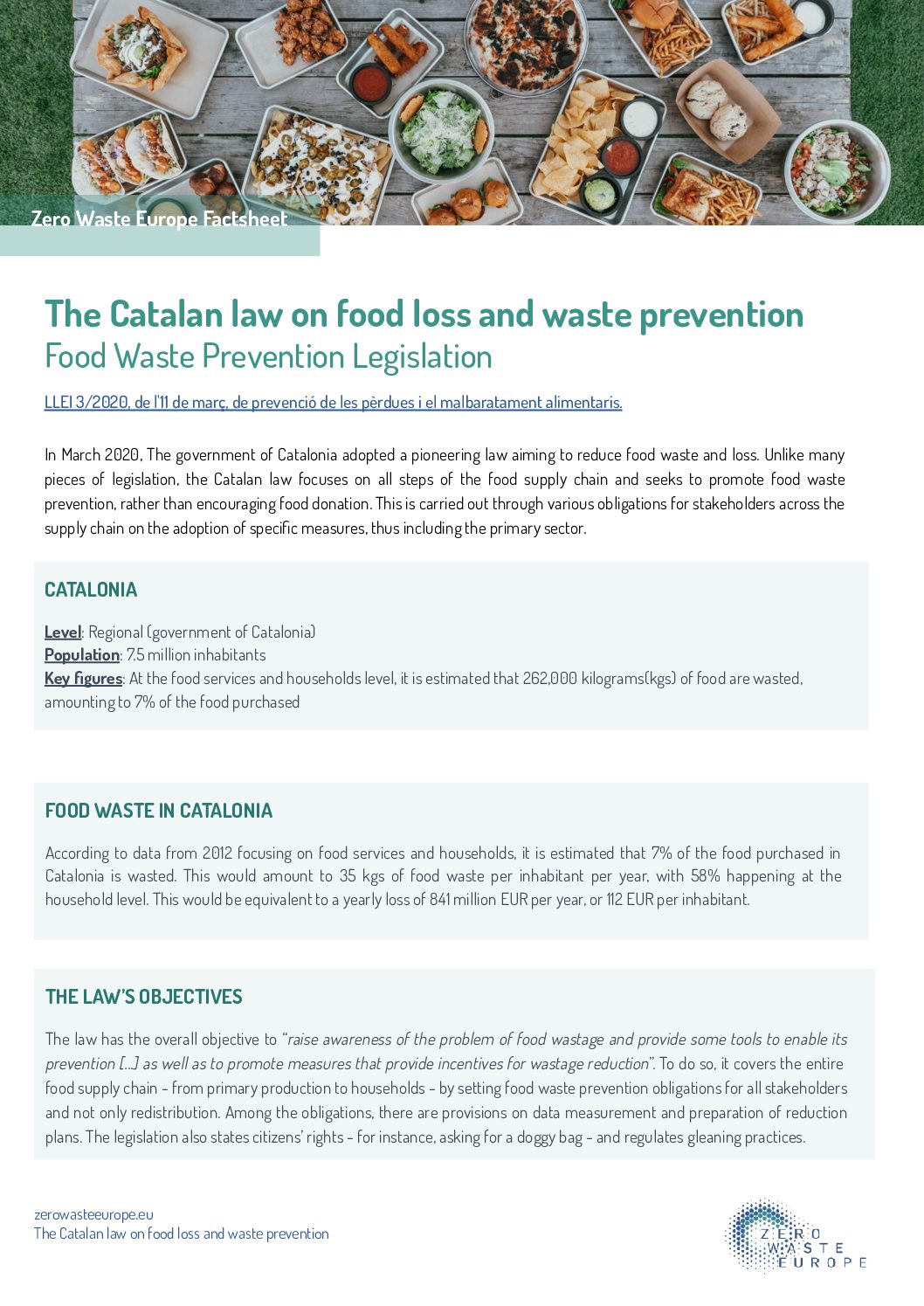
In March 2020, The government of Catalonia adopted a pioneering law aiming to reduce food waste and loss. Unlike many pieces of legislation, the Catalan law focuses on all steps of the food supply chain and seeks to promote food waste prevention, rather than encouraging food donation. This is carried out through various obligations for stakeholders across the supply chain on the adoption of specific measures, thus including the primary sector.
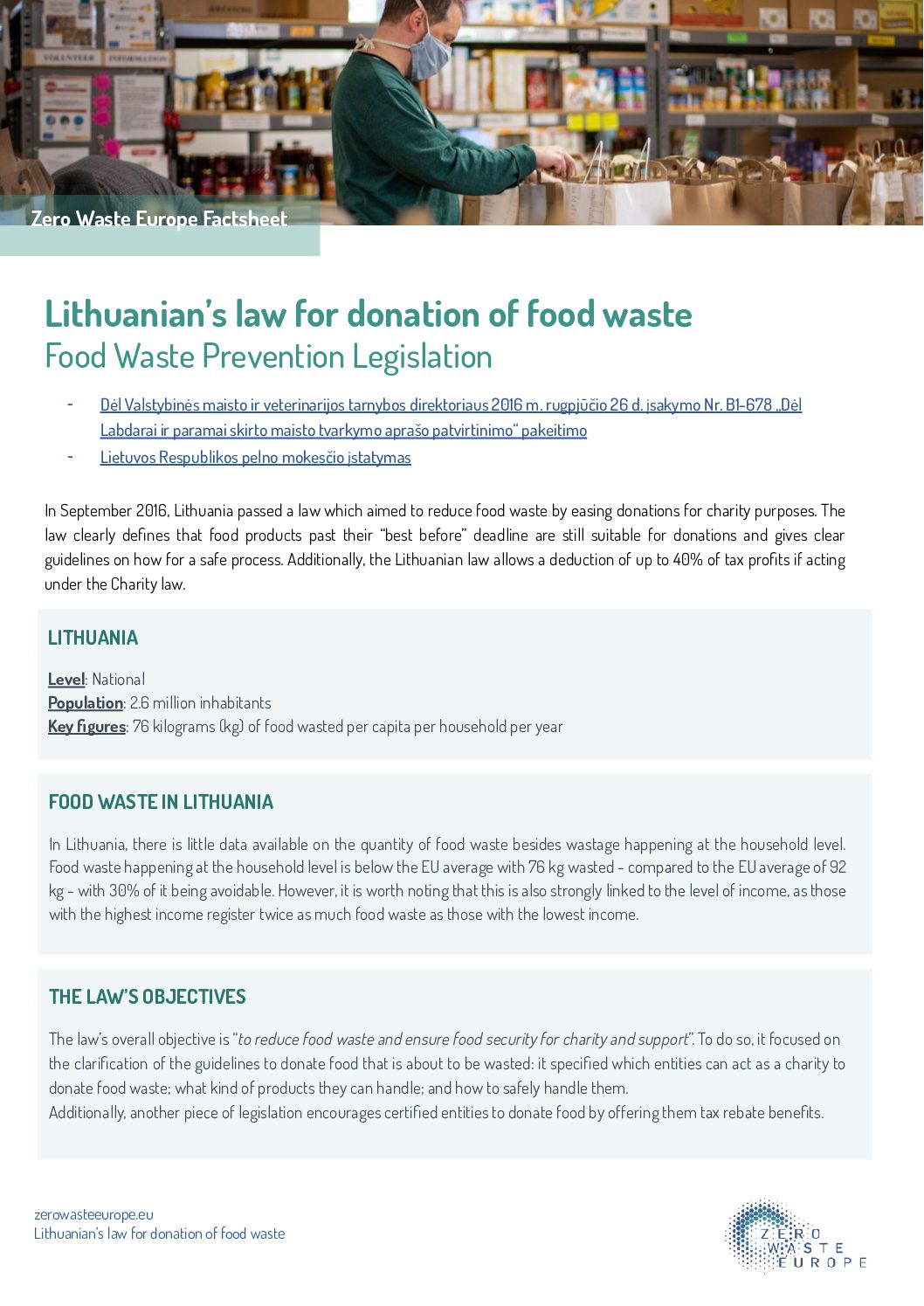
In September 2016, Lithuania passed a law that aimed to reduce food waste by easing donations for charity purposes. The law clearly defines that food products past their “best before” deadline are still suitable for donations and gives clear guidelines on how for a safe process. Additionally, the Lithuanian law allows a deduction of up to 40% of tax profits if acting under the Charity law.
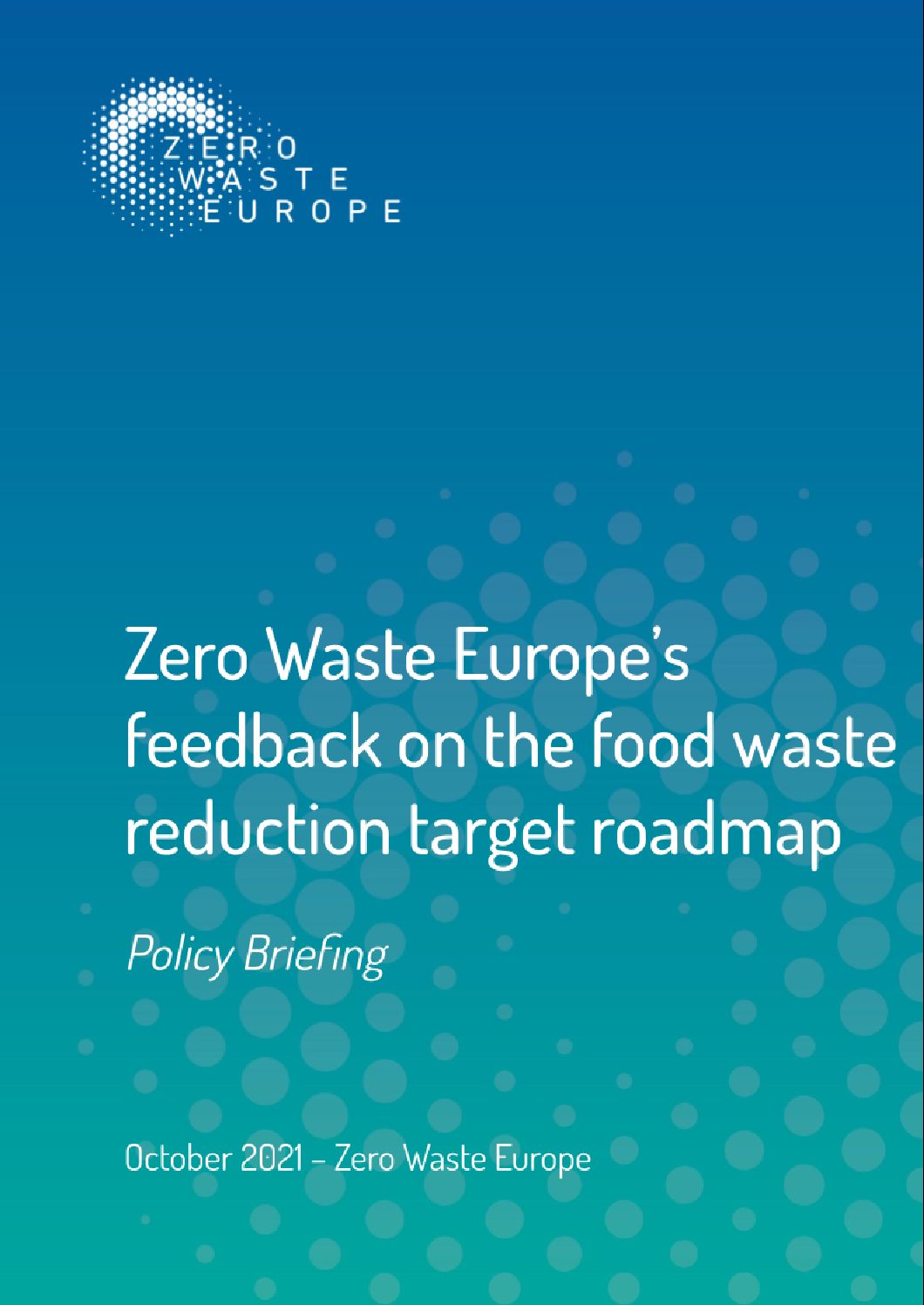
Zero Waste Europe welcomes the initiative of the European Commission to start the process to set-up binding food waste reduction targets across the EU. Food waste is a multifold problem that not only causes environmental and climate damage but is also morally unacceptable.
Therefore, it is essential to properly address this issue by adopting efficient and ambitious targets for the coming years.
Available in English.
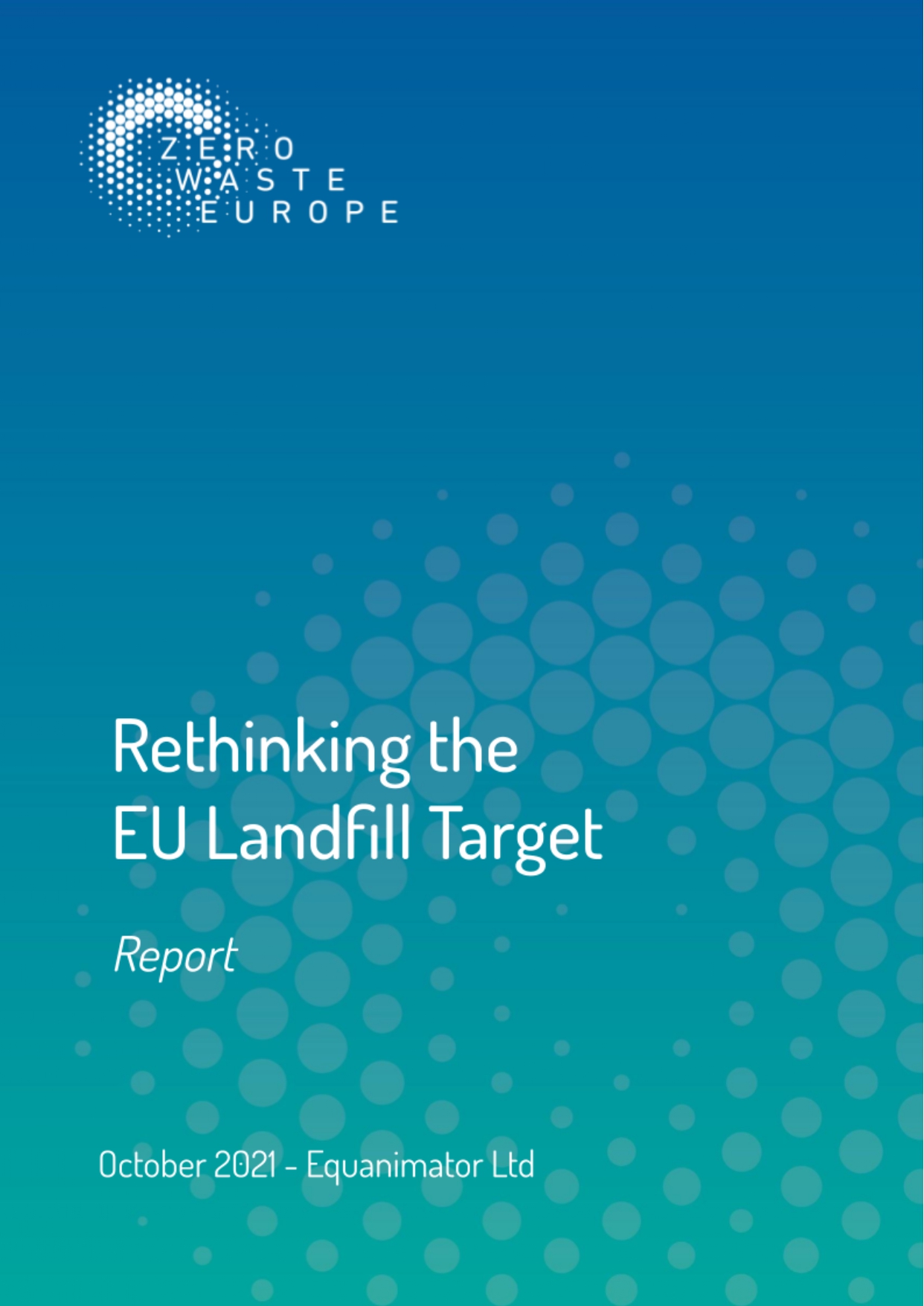
The current EU residual waste policy lacks emphasis on waste reduction, which then creates a paradox – it doesn’t matter how much is waste produced, only the percentage of it that is landfilled. There is a need for a new policy framework that prioritises the minimisation of generated residual waste. This would not only reward waste reduction efforts, but also give proper focus to its high place in the waste hierarchy. More importantly, it would position residual waste reduction as the way forward towards circularity and sustainability.
This report presents a comprehensive analysis and arguments on the need to improve the Landfill Directive and the Waste Framework Directive, highlighting residual waste reduction as a crucial tool to ensure alignment with the overarching principles of the EU Circular Economy Agenda.
Available in English.
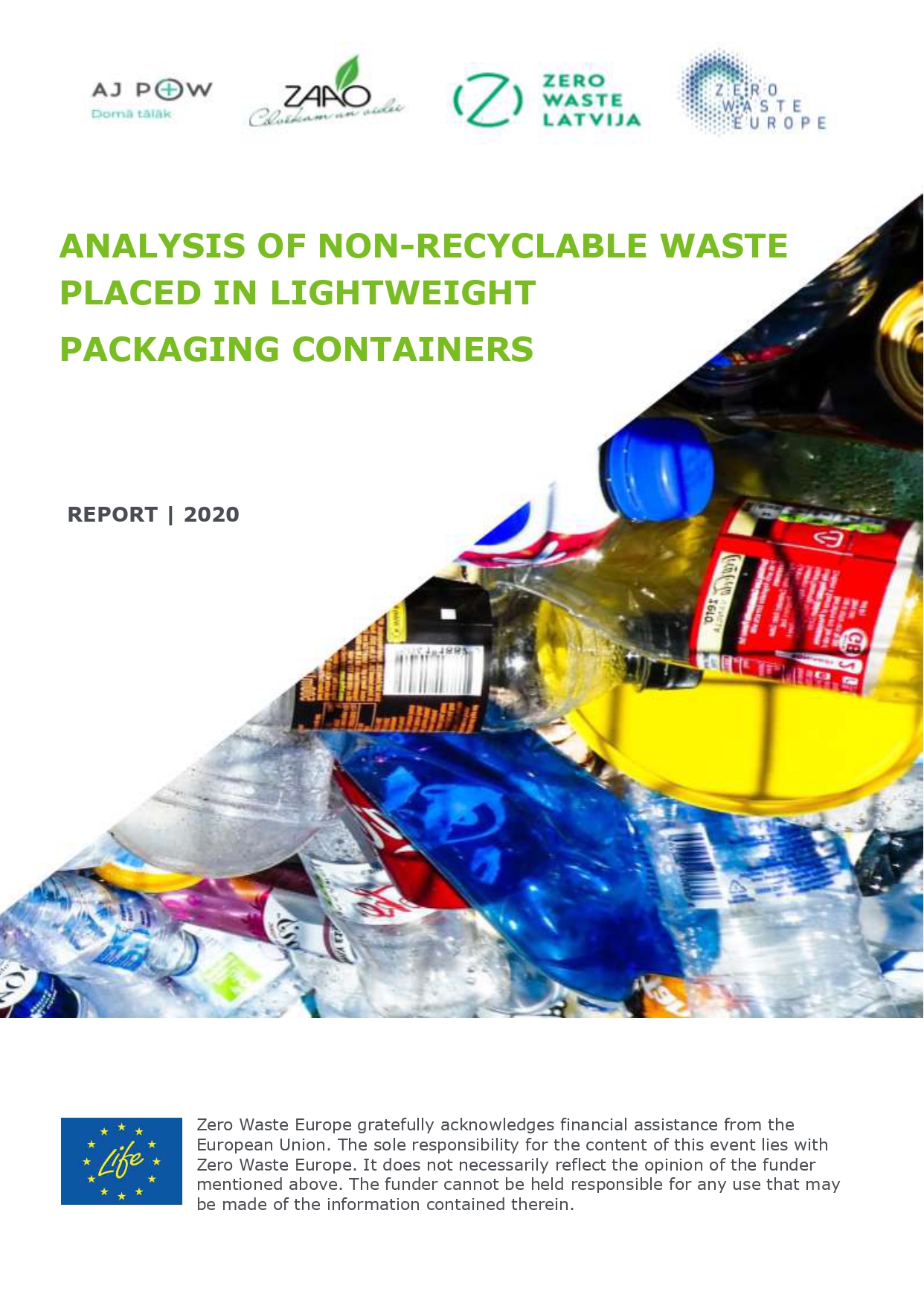
This report, produced by Zero Waste Latvia, provides information about the waste that cannot be recycled, which ends up in a lightweight packaging container, its composition and the mistakes most often made by the public. Based on the results obtained, the report’s authors make recommendations to manufacturers and decision-makers to promote correct sorting of waste, improve communication intended for the public and take other strategic measures to improve the waste management system.
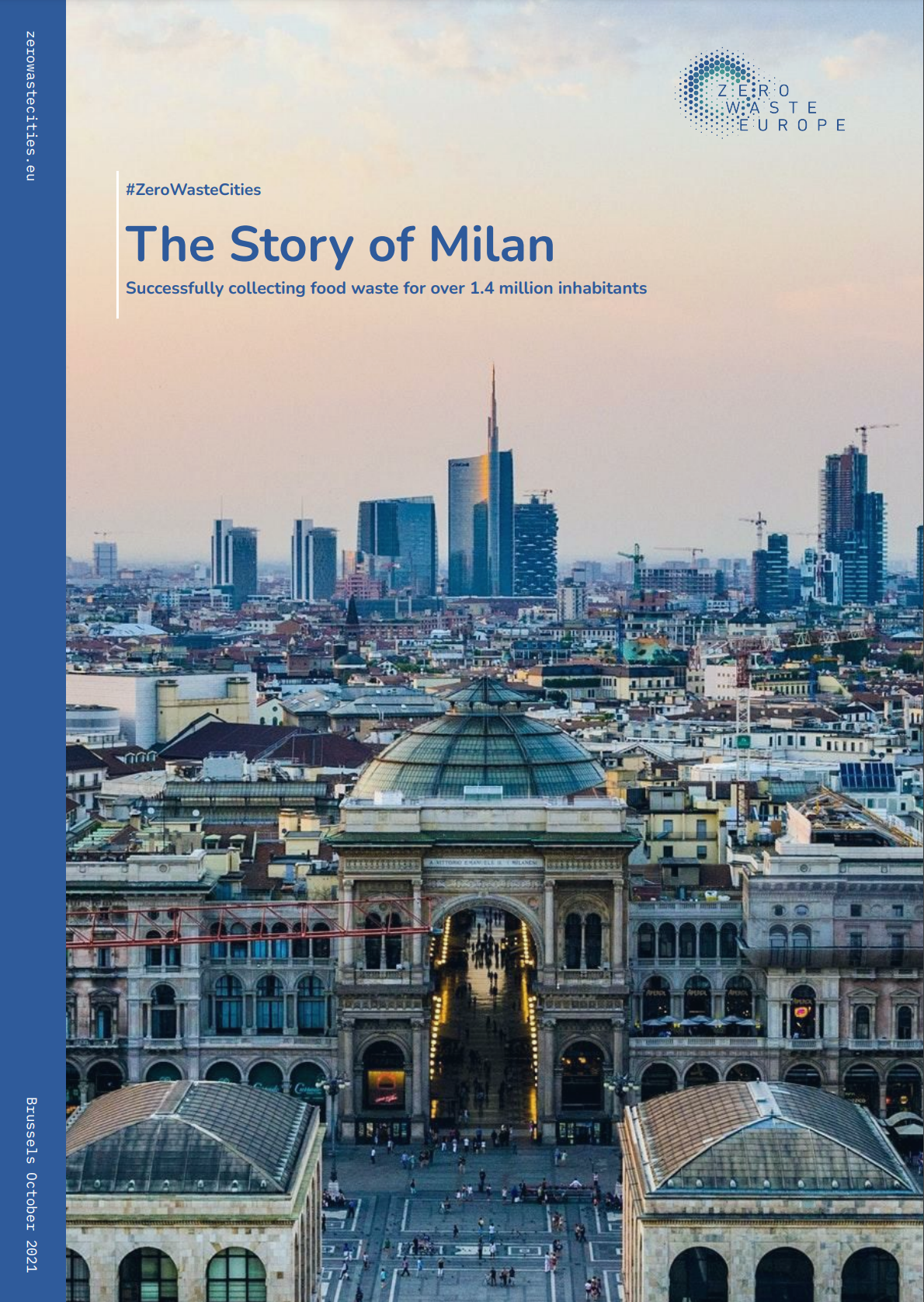
In 2011, the city of Milan started implementing an ambitious scheme to separately collect bio-waste and recycle it. With 1.4 million inhabitants and an extremely densely populated area, this wasn’t an easy task as bio-waste collection schemes are more difficult to set up in big cities. However, after 10 years, Milan is now one of the leading examples, with 95 kilograms of bio-waste collected per inhabitant and a 62% waste collection rate.
With the 1 January 2024 deadline for all EU Member States to collect bio-waste separately, the story of Milan shows how other cities across Europe can follow in their footsteps to effectively collect and manage food waste, even in the challenging circumstances that large, densely-populated cities provide.
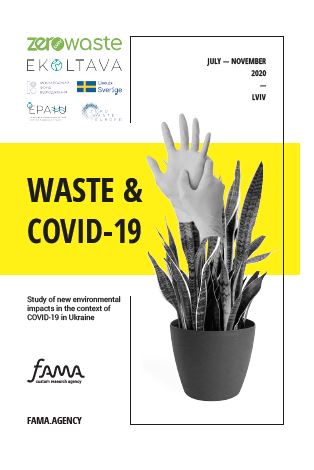
This study focused on the possibility to adapt and provide appropriate recommendations on the response of the Ukrainianwaste management system to the СОVID-19 crisis. The report has been developed by our member Zero Waste Lviv in cooperation with the NGO Ekoltava and the Custom research agency Fama.
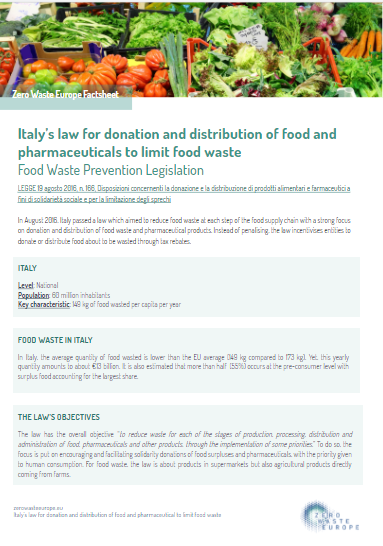
In August 2016, Italy passed a law which aimed to reduce food waste at each step of the food supply chain with a strong focus on donation and distribution of food waste and pharmaceutical products. Instead of penalising, the law incentivises entities to donate or distribute food about to be wasted through tax rebates. Read more in our factsheet.
Available in English, Hungarian and Italian.
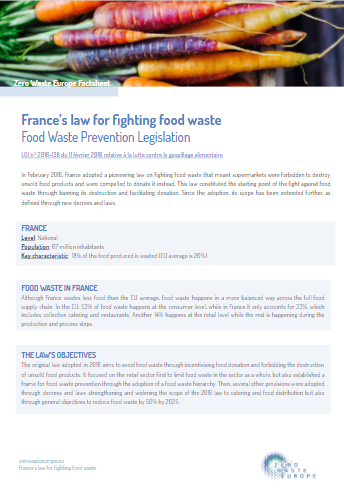
In February 2016, France adopted a law on fighting food waste that meant supermarkets were forbidden to destroy unsold food products and were compelled to donate it instead. This law constituted the starting point of the fight against food waste through banning its destruction and facilitating donation. Since the adoption, its scope has been extended further, as defined through new decrees and laws. Read more in our factsheet.
Available in English, Hungarian and Italian.

















